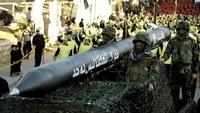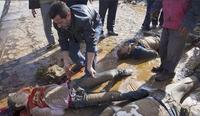-
Securing Industry 4.0
An increasing number of unsecured, computer-guided production machinery and networks in production facilities are gradually evolving into gateways for data theft. New security technologies may directly shield the sensitive data that is kept there.
-
-
$38.2 billion for DHS in FY2015 budget proposal; $1.25 billion in cyber funding
The administration’s FY 2015 budget proposal, submitted to Congress on Tuesday, requests $38.2 billion in non-disaster funding for DHS, which is nearly a 3 percent reduction relative to FY 2014 allocation, but about the same as FY 2013. The proposal asks for about $1.25 billion – or 3 percent of the requested $38.2 billion – for cyber security funding, up from the $792 million in cybersecurity funding Congress approved for DHS in FY 2014. Of the $1.3 billion, about $1 billion will go for cyber initiatives, including funding for a new voluntary program for critical infrastructure companies and money to bolster civilian network security.
-
-
Libyan Islamists tried to ship mustard gas to Syrian rebels

Libyan officials report that they have recently apprehended several members of a Libyan Muslim extremist militia planning to ship chemical weapons to anti-Assad rebels in Syria. Colonel Mansour al-Mazini of the Libya army said that the Islamists had been caught with a container of mustard gas. The gas was confiscated by Libyan soldiers.
-
-
Energy Department suspends work on controversial plutonium reprocessing project

The Obama administration has decided to put on hold its plans to complete construction on a South Carolina reprocessing facility which would convert nuclear weapon-grade plutonium into reactor fuel. The suspension of work on the project is part of the fiscal 2015 budget plan the administration unveiled Tuesday. The project has been hobbled by delays and massive cost-overruns, and experts says security and safety concerns have not been adequately addressed.
-
-
Two politicians insisting on more congressional oversight of DHS
The lawmakers who support the proposed DHS Acquisition Accountability and Efficiency Act, authored by Representative Jeff Duncan (R-South Carolina), are doing exactly what they were sent to Washington to do: they are attempting to provide fiscal oversight over one of our largest federal agencies. Hopefully, politicians on both sides of the aisle will join Representatives Duncan and Michael McCaul (R-Texas) in passing legislation forcing DHS to use tax payer money in the most efficient ways possible, including demanding contractors meet the terms of their contracts, not rewarding contractors who have a record of poor performance, and completing their security-related projects in a timely manner.
-
-
Proposed 2015 budget cuts funding for nuclear nonproliferation programs
The Obama administration 2015 budget proposal shows that the administration will spend less on nuclear nonproliferation initiatives in 2015 than it would in 2014. The budget of the National Nuclear Security Administration (NNSA), the agency responsible for various nuclear weapons and nuclear nonproliferation programs, will be cut by 20 percent, from the $1.9 billon Congress approved for fiscal 2014 — which in turn was a $289 million cut from fiscal 2013 levels — to $1.6 billion in 2015.
-
-
Egyptian court bans all Hamas activities
An Egyptian earlier today (Tuesday) banned all activities of Hamas, a Palestinian offshoot of the Egyptian Muslim Brotherhood. Hamas has been in control of the Gaza Strip since summer 2007. In December, the Egyptian government declared the Muslim Brotherhood to be a terrorist group, freezing its assets, making membership in the group a crime, and banning all its political activities. The Egyptian military, now holding effective power in Egypt, has always regarded Hamas as a security threat, accusing the group of supporting Islamist insurgency in the Sinai Peninsula and Islamists radicals inside Egypt.
-
-
Militant Islamism in Russia is the product of outside influences

Muslims in Russia, who belong to Turkic ethnic groups (this includes the largest Muslim group in Russia, the Tatars), practice moderate Sunni Islam of the Hanafite school. Russian Muslims living in the Caucasus Mountains practice Sunni Islam of the Shafiite school. A large number of Russian Muslims also follow Sufi orders — Naqshbandi, Qadiri, and others. The radicalization of some Russian Muslims began in the early 1990s with Saudi-financed madrassas where radical and fundamentalist strands of Islam were taught, and where Islamist militants were trained, and with Saudi-financed radical preachers spreading “true Islam.” The madrassas were closed in 2000, and the fundamentalist preachers ordered out of the country, but by then enough Russian Muslims were already radicalized.
-
-
Experts call for a new organization to oversee grid’s cybersecurity

In 2013, U.S. critical infrastructure companies reported about 260 cyberattacks on their facilities to the federal government. Of these attacks, 59 percent occurred in the energy sector. A new report proposes that energy companies should create an industry-led organization to deflect cyber threats to the electric grid. Modeled after the nuclear industry’s Institute of Nuclear Power Operations, the proposed organization, to be called the Institute for Electric Grid Cybersecurity, would oversee all the energy industry players that could compromise the electric grid if they came under a cyberattack.
-
-
Iranian court orders man's eyes to be gouged, and nose and one ear cut off
An Iranian court sentenced a main who poured acid on a young girl’s face to having his eyes gouged out and his right ear and nose cut off. The man was convicted last October of intentionally attacking the girl with acid, causing her to lose her eyesight and right ear.
-
-
Islamists kill nearly 100 in weekend attacks in Nigeria
At least ninety people have been killed in three weekend attacks over the weekend by Islamist group Boko Haram. The attacks took place in northeast Nigeria, the area where the group attacks have killed thousands of people since 2009. This past weekend’s attacks cap three weeks in which the Islamist militants killed more than 400 people. Since last May, the Nigerian government has placed three states in the region — Adamawa, Borno, and Yobe — under a state of emergency in an effort to defeat the Islamic insurgency, but to little effect. The Nigerian military campaign has been criticized by military experts, who say the military has adopted an approach which is too passive to be effective against nimble insurgents. The quality of the troops and their commanders is low, resulting in guard being left unstaffed, slow response – at times several hours — to reports of attacks and calls for help, and soldiers abandoning their posts and running away in the face of the attacks.
-
-
NIST’s voluntary cybersecurity framework may be regarded as de facto mandatory
The National Institute of Standards and Technology’s (NIST) voluntary cybersecurity frameworkissued in February establishes best practices for companies that support critical infrastructure such as banking and energy. Experts now warn that recommendations included in the framework may be used by courts, regulators, and even consumers to hold institutions accountable for failures that could have been prevented if the cybersecurity framework had been fully implemented by the respective institution.
-
-
Google asks court to allow reposting of anti-Islamic film on YouTube

Google on Friday asked a U.S. appeals court to allow the reposting of an anti-Islamic movie on YouTube pending a re-hearing of the copyright case which led to the movie removal. Last Wednesday the Ninth Circuit Court of Appeals ordered Google to remove the movie from YouTube. Google told the court it has complied with the court’s earlier “unprecedented sweeping injunction,” but argued that irreparable harm is being done to Constitutional rights of YouTube, Google, and the public.
-
-
DHS drops plans for national license-plate database
DHS has recalled its solicitation for bids by private companies to help the department create a national license-plate database which would allow unlimited access to information obtained from commercial and law enforcement license plate readers (LPRs). DHS wanted to use the database to track fugitive undocumented immigrants and others sought by law enforcement, but the database, which could have contained more than one billion records, raised privacy concerns and questions about the safeguards which would be used to protect innocent citizens.
-
-
Google to fight order to take down Islamophobic movie
The amateurish anti-Islamic movie “Innocence of Muslims” triggered a wave of violence in the Middle East and North Africa when it was released in 2012. The U.S. Ninth Circuit Court of Appeals in San Francisco accepted the copyright claim of an actress who said she was duped into appearing in the movie, and ordered Google to remove a trailer for it from YouTube. Google complied, but said it would fight the decision.
-
More headlines
The long view
What Does Netflix’s Drama “Adolescence” Tell Us About Incels and the Manosphere?
While Netflix’s psychological crime drama ‘Adolescence’ is a work of fiction, its themes offer insight into the very real and troubling rise of the incel and manosphere culture online.
A Shining Star in a Contentious Legacy: Could Marty Makary Be the Saving Grace of a Divisive Presidency?
While much of the Trump administration has sparked controversy, the FDA’s consumer-first reforms may be remembered as its brightest legacy. From AI-driven drug reviews to bans on artificial dyes, the FDA’s agenda resonates with the public in ways few Trump-era policies have.
The Center Can Hold — States’ Rights and Local Privilege in a Climate of Federal Overreach
As American institutions weather the storms of executive disruption, legal ambiguity, and polarized governance, we must reexamine what it means for “the center” to hold.
How to Reverse Nation’s Declining Birth Rate
Health experts urge policies that buoy families: lower living costs, affordable childcare, help for older parents who want more kids
Foundation for U.S. Breakthroughs Feels Shakier to Researchers
With each dollar of its grants, the National Institutes of Health —the world’s largest funder of biomedical research —generates, on average, $2.56 worth of economic activity across all 50 states. NIH grants also support more than 400,000 U.S. jobs, and have been a central force in establishing the country’s dominance in medical research. Waves of funding cuts and grant terminations under the second Trump administration are a threat to the U.S. status as driver of scientific progress, and to the nation’s economy.
The True Cost of Abandoning Science
“We now face a choice: to remain at the vanguard of scientific inquiry through sound investment, or to cede our leadership and watch others answer the big questions that have confounded humanity for millennia —and reap the rewards.”
